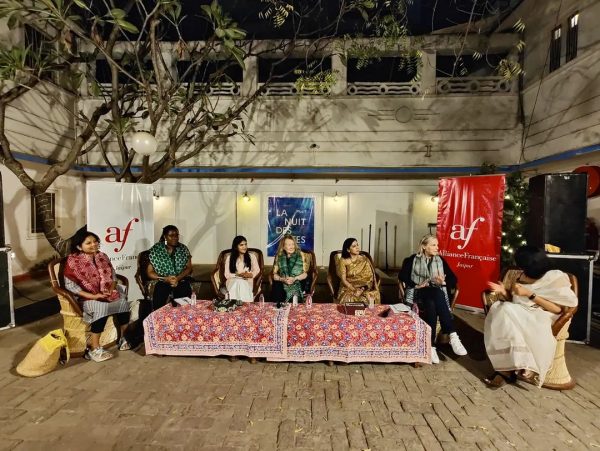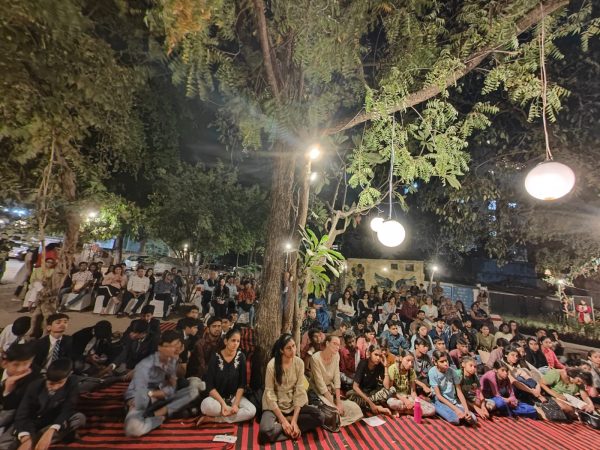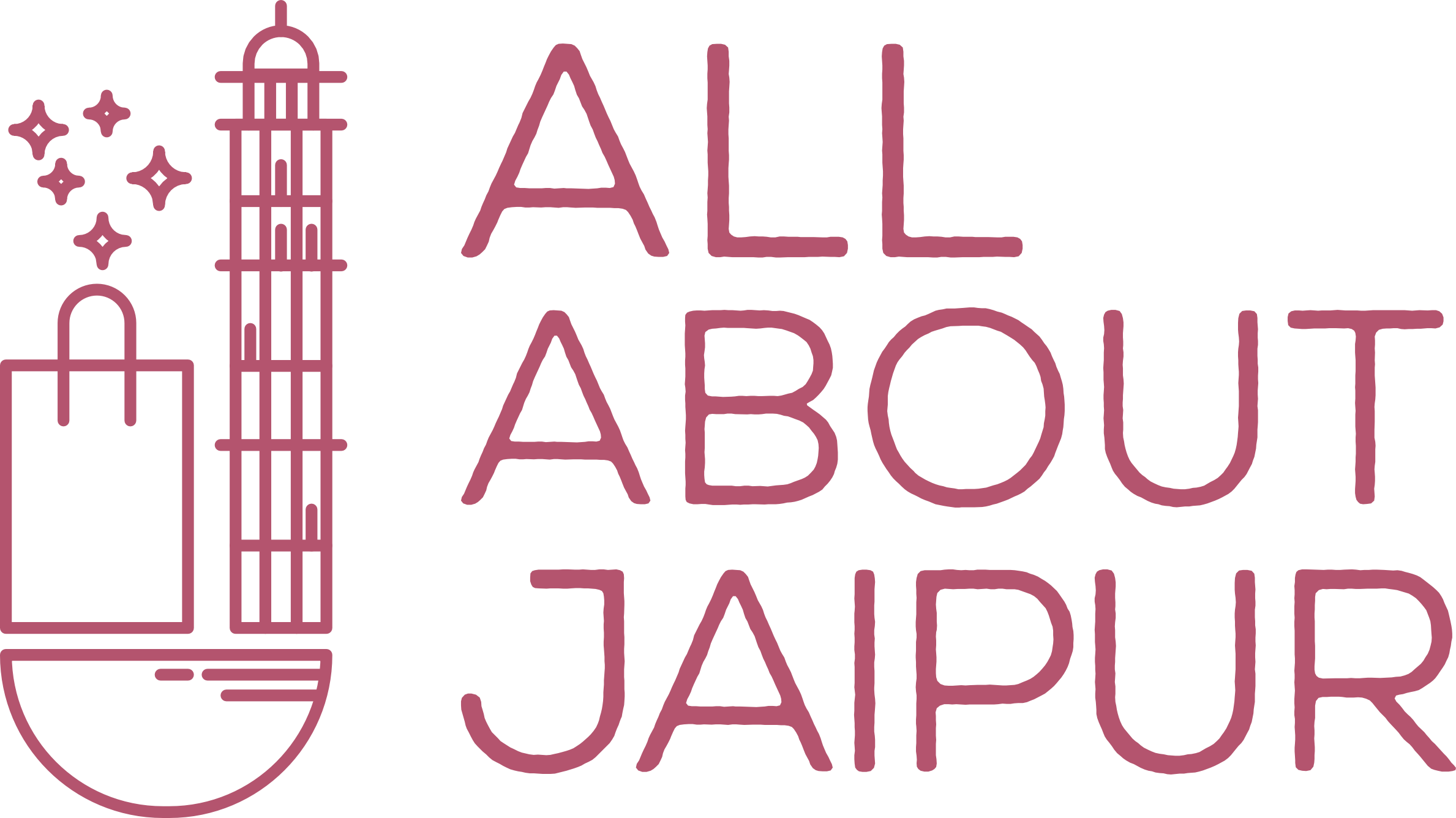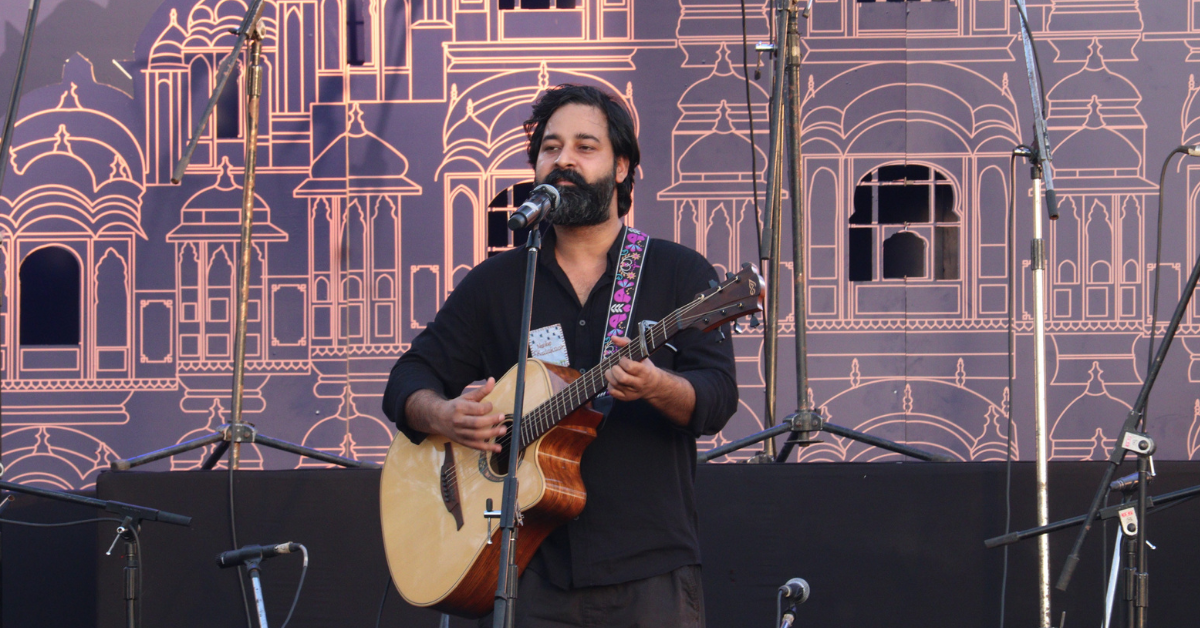The C-scheme located Krishna Niwas radiated an aura of intellectual stimulation and thought-provoking discussion as the Alliance Francaise Jaipur in association with the French Institute in India, recently hosted the ‘Night of Ideas’, an evening of literary conversations, debate and dialogue with Nobel Laureate for literature, French author, Annie Ernaux. She was joined by the winner of Prix Femina and member of Academie Goncourt, Camille Laurens, Afro feminist author, Laura Nsafou and winner of the prestigious Emile Guimet prize for South Asian Literature, Shubhangi Swarup.
In a riveting session moderated by the writer and translator, Saudamini Deo, the panelists discussed the limits of the private in the public, the nuances of fiction, auto-fiction and autobiographical writing as well as examined the interplay between identity and publishing. With insightful commentary and thoughtful perspectives, the panelists provided an interesting discussion on the influence of personal experience on the craft of writing and the reciprocal impact of publishing on individual identity.

Auto Social Biography
Annie Ernaux was awarded the 2022 Nobel Prize in Literature “for the courage and clinical acuity with which she uncovers the roots, estrangements and collective restraints of personal memory”. It is noteworthy that she is not only one of the 17 women to win the Nobel Prize but also the first French woman to be awarded this honour. Her literary work, mostly autobiographical, maintains close links with sociology. In a question on the ‘auto-fiction’ genre of writing, Ernaux said that when she began writing, auto-fiction did not exist. There was mainly novel and autobiographical form of writing. She wrote about her own experiences such as relationship with parents, abortion, struggle of the working class and the importance of women’s freedom of speech, among others. “It is difficult to put limits to the private when one is writing about their experiences and I prefer to call my work ‘Auto Social Biography’”, said Ernaux.
Contributing to the discussion, Afro-feminist author Laura Nsafou emphasized that auto-fiction is often stigmatized due to the fear of individuals in the writer’s social circle appearing in the book. She acknowledged that while the lines between private and public can be hazy, it is essential for writers to uphold ethical standards in their work. Nsafou’s thoughtful perspective added a valuable dimension to the conversation, emphasizing the importance of responsibility and respect in the art of storytelling.

Politics and Writing
Reflecting on the complexities of navigating the ‘political’ in writing and shedding light on the interconnectedness of writing and broader societal structures, Ernaux posited that all writing is inherently political. Even when the focus is on personal experiences, political concepts such as family dynamics are at play since they are shaped by legal frameworks. Therefore, socio-political factors inevitably influence one’s writing.
Echoing Ernaux’s perspective, Nsafou emphasized that even tackling taboo subjects through writing has political implications since such taboos are socially constructed. By addressing these sensitive topics, writers challenge prevailing societal norms and assert their agency, making their work inherently political.
As the discussion drew to a close, the panelists offered diverse perspectives on the meaning and multifaceted nature of fiction. While Ernaux defined it simply as the way a book or piece of writing is written , the other writers contributed their own intriguing insights. Laurens proposed a thought-provoking notion, stating, “We are all fiction. As we remember ourselves, we invent ourselves.” Swarup offered another interesting viewpoint, suggesting that the opposite of fiction is a lack of imagination.
Tusharika Singh
Latest posts by Tusharika Singh (see all)
- Music experiences in the Pink City - January 11, 2025
- Jaipur Literature Festival 2025 Announces First List of Speakers for Landmark 18th Edition - December 3, 2024
- From Rejection to Recognition: Jaipur’s Abhishek Mudgal joins NSD as stage manager - December 2, 2024









